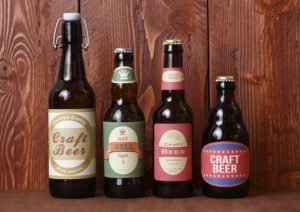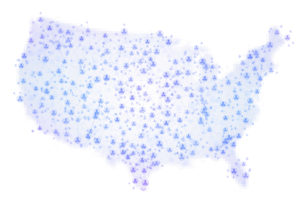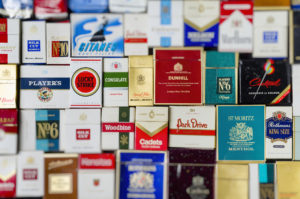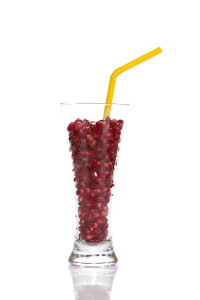** Ninth Circuit Stays Natural Case In “Food Court” **
By: Brent E. Johnson

The doctrine of primary jurisdiction is a prudential means to stay or dismiss a party’s claims if the claims are better adjudicated or answered by an administrative agency – it “is concerned with promoting proper relationships between the courts and administrative agencies charged with particular regulatory duties.” Ellis v. Tribune Television Co., 443 F.3d 71, 81 (2d Cir.2006). It is properly applied “whenever enforcement of the claim requires the resolution of issues which, under a regulatory scheme, have been placed within the special competence of an administrative body.” Id. When applicable, “a court defers to the agency for advisory findings and either stays the pending action or dismisses it without prejudice” Johnson v. Nyack Hosp., 86 F.3d 8, 11 (2d Cir.1996).
Courts must make a case-by-case determination when considering primary jurisdiction. In doing so, they generally focus on: (1) whether the question at issue is within the conventional experience of judges or whether it involves technical or policy considerations within the agency’s particular field of expertise; (2) whether the question at issue is particularly within the agency’s discretion; (3) whether there exists a substantial danger of inconsistent rulings; and (4) whether a prior application to the agency has been made. Nat’l Commc’ns Ass’n v. AT & T, 46 F.3d 220, 222 (2d Cir.1995).
There was a time when “primary jurisdiction” was in vogue for “all natural” defendants because of the perception that the FDA was the proper administrative body to answer the question of what sort of ingredients and products qualify as “natural.” The leading case was Astiana v. Hain Celestial Grp., Inc., 905 F. Supp. 2d 1013 (N.D. Cal. 2012). This case involved Hain Celestial’s cosmetics products with labels including “All Natural,” “Pure Natural,” or “Pure, Natural & Organic.” In this case, the putative nationwide class representatives alleged that they had been duped into purchasing Hain’s cosmetics that allegedly contained synthetic and artificial ingredients such as benzyl alcohol. As is typical in such cases, the plaintiffs sought damages and injunctive relief under a variety of theories including statutory violations under the California’s Consumer Legal Remedies Act. The district court dismissed the case, applying primary jurisdiction, holding that “[in] the absence of any FDA rules or regulations (or even informal policy statements) regarding the use of the word “natural” on cosmetics labels, the court declines to make any independent determination of whether defendants’ use of “natural” was false or misleading. Doing so would “risk undercutting the FDA’s expert judgments and authority.” Other district courts invoked the agency’s primary jurisdiction to wait and see if the FDA intended to offer regulations regarding the use of the term “natural” (in particular in GMO food cases). In re Gen. Mills, Inc. Kix Cereal Litig., No. CIV–A–12–249 KM, 2013 WL 5943972 (D.N.J. Nov. 1, 2013), Barnes v. Campbell Soup Co., No. C12–05185 JSW, 2013 WL 5530017 (N.D.Cal. July 25, 2013) (GMO food case), Cox v. Gruma Corp., No. 12–CV–6502 YGR, 2013 WL 3828800 (N.D.Cal. July 11, 2013) (GMO case).
Undeterred by the district court’s dismissal, the Plaintiffs in Astiana went on a two pronged attack. They went directly to the FDA seeking guidance on the definition of “natural.” The FDA responded by letter stating – “cosmetic public health and safety matters are currently fully occupying the resources that FDA has available for proceedings on cosmetics matters” and “proceedings to define ‘natural’ do not fit within [the agency’s] current health and safety priorities.” Plaintiffs also appealed to the Ninth Circuit. Astiana v. Hain Celestial Grp., Inc., 783 F.3d 753, 759 (9th Cir. 2015). The Ninth Circuit held that — while the district’s court primary jurisdiction doctrine decision was not wrong — it should have stayed the matter awaiting an FDA response. Upon remand, the district court revisited the primary jurisdiction argument and, recognizing that the recent FDA letter demonstrated that the FDA has no interest in the subject matter and, therefore, referral to the FDA would be futile, the court denied defendant’s motion to stay on primary jurisdiction grounds. Astiana v. Hain Celestial Grp., Inc., No. 4:11-cv-06342-PJH (N.D. Cal. October 9, 2015) (Dkt. No. 114).
Courts in other jurisdictions have followed this same rejection of the primary jurisdiction doctrine argument made by cosmetic company defendants in “natural” cases. Goldemberg v. Johnson & Johnson Consumer Companies, Inc., 8 F. Supp. 3d 467, 476 (S.D.N.Y. 2014) (“the FDA has not begun to promulgate a rule concerning the term natural in cosmetics . . [i]nstead, it recently declined to make such a determination . . . [t]hus, as the agency is not simultaneously contemplating the same issue . . . this factor weighs against applying the primary jurisdiction doctrine”); Paulino v. Conopco, Inc., No. 14-CV-5145 JG RML, 2015 WL 4895234, at *1 (E.D.N.Y. Aug. 17, 2015); Langan v. Johnson & Johnson Consumer Companies, Inc., 95 F. Supp. 3d 284, 290 (D. Conn. 2015); Fagan v. Neutrogena Corp., No. 5:13-CV-01316-SVW-OP, 2014 WL 92255, at *1 (C.D. Cal. Jan. 8, 2014) (“Plaintiffs’ claims are not barred by the doctrine of primary jurisdiction . . . [as the] FDA has affirmed that proceedings to define the term natural in the context of cosmetics do not fit within its current health and safety priorities.”); see also Reid v. GMC Skin Care USA Inc., No. 815CV277BKSCFH, 2016 WL 403497, at *1 (N.D.N.Y. Jan. 15, 2016) (rejecting primary jurisdiction in case alleging that face cream with “DNA repair effect” statements was misleading); Randolph v. J.M. Smucker Co., No. 13-80581-CIV, 2014 WL 1018007, at *6 (S.D. Fla. Mar. 14, 2014).
At the same time that the primary jurisdiction doctrine was being buried with respect to “natural” claims, it remained viable in various food cases, particularly those presenting discrete technical questions, i.e. Backus v. Gen. Mills, Inc., 122 F. Supp. 3d 909, 933 (N.D. Cal. 2015) (primary jurisdiction invoked on question of the amount of trans fat in baked goods that is safe); Saubers v. Kashi Co., 39 F. Supp. 3d 1108 (S.D. Cal. 2014) (primary jurisdiction invoked with respect to “evaporated cane juice” labels) (collecting cases). The basis for primary jurisdiction in particular in the ECJ cases is that that FDA has indicated that it WILL issue regulatory guidance on evaporated cane juice – but not until the end of 2016. See also Draft Guidance for Industry on Ingredients Declared as Evaporated Cane Juice; Reopening of Comment Period; Request for Comments, Data, and Information, 79 Fed.Reg. 12,507 (Mar. 5, 2014). Most evaporated cane juice cases are currently stayed (or dismissed) see, e.g., Gitson, et al. v. Clover-Stornetta Farms, Inc., Case No. 3:13-cv-01517-EDL (N.D. Cal. Jan. 7, 2016) (extending ECJ stay for an additional 180 days, until August 2016) (Laporte, J.); Swearingen v. Amazon Preservation Partners, Inc., Case No. 13-cv-04402-WHO (N.D. Cal. Jan. 11, 2016) (Orrick, J.) (extending ECJ stay and continuing case management conference until July 2016). A few judges have lifted the ECJ stay (impatient at the FDA’s movement) but they appear to be out-liers. See Figy v. Lifeway Foods, Inc., No. 3:13-cv-4828-TEH (N.D. Cal. Jan. 4, 2016), Dkt. No. 57; Swearingen v. Pacific Foods of Oregon, Inc., No. 13-cv-04157 (N.D. Cal. Jan. 5, 2015), Dkt. No. 61.
But we digress. Back to “natural” and a significant development. In November 2015, the FDA issued a request for comments regarding the use of the term “natural” in connection with food product labeling. See Use of the Term “Natural” in the Labeling of Human Food Products; Request for Information and Comments, 80 Fed. Reg. 69,905 (Nov. 12, 2015). See our previous blog post. While noteworthy in and of itself, the FDA’s requests for comments also raised the secondary issue of whether the FDA’s new-found interest in potentially defining “natural” with respect to foods triggers the primary jurisdiction doctrine? Last week, the Ninth Circuit answered – Yes. In Kane v. Chobani, LLC, No. 14-15670, 2016 WL 1161782, at *1 (9th Cir. Mar. 24, 2016), the circuit court dealt with an appeal from the Northern District of California where buyers of Chobani fruit flavored Greek yogurt filed suit against the company alleging that its labels and advertising violated California law because the “all natural” yogurt included fruit juice and turmeric. Before the district court, the plaintiffs had a difficult time articulating why it was plausible to allege that fruit juice and turmeric are unnatural vacillating between the argument that it is unnatural to use these ingredients to color yogurt and the argument that the fruit juices at issue were so heavily processed that they are no longer natural. Ultimately the district court found that the case warranted dismissal on Rule 9(b) and 12(b)(6) grounds. Kane v. Chobani, LLC, 973 F. Supp. 2d 1120, 1138 (N.D. Cal. 2014). Plaintiffs appealed on the basis that under primary jurisdiction their case should have been stayed – not dismissed. And the Ninth Circuit agreed, vacating the dismissal and remanding to the district court under a stay pending resolution of the FDA’s “natural” proceedings. So a win for the plaintiffs in Chobani – but one that defendants will take careful note of – in the Ninth Circuit and beyond.





